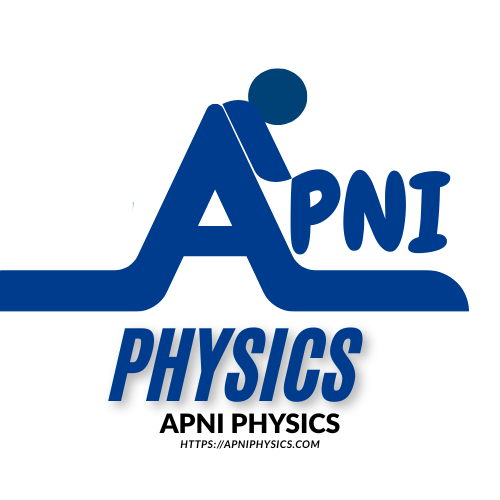From the Organizer of INT
The organizer announced the 2018 TALENT program on Fundamental Symmetries & Neutrinos. The Institute for Nuclear Theory (INT) will host this three-week course, July 9-27, 2018. The course is part of the TALENT initiative (“Training in Advanced Low-Energy Nuclear Theory”) to develop a comprehensive program for training in low-energy nuclear theory. For more information about the program, you can visit http://www.nucleartalent.org.
Thank you for reading this post, don't forget to subscribe!The 3-week program is intended for theorists who have already completed graduate-level courses in quantum mechanics. The TALENT initiative aims at providing advanced and comprehensive training to graduate students and junior researchers in low-energy nuclear theory. This course will introduce students to the exciting physics of fundamental symmetry tests and neutrino studies in nuclear physics, including implications for both the Standard Model and possible physics beyond the Standard Model.
The primary objectives are:
• Helping students and early post-docs become aware of the open challenges in fundamental symmetries and neutrinos and the broader context in which they reside
• Provide an introduction to some of the relevant theoretical methods for students whose interest may be piqued by the relevant open problems
• Enable students to develop an appreciation for the questions this subfield seeks to address, the motivation for the significant experimental efforts underway, and the cross-disciplinary nature of this research
The primary lecturers will be Vincenzo Cirigliano (Los Alamos National Laboratory) and Michael Ramsey-Musolf (University of Massachusetts Amherst). Additional lectures will also be provided by guest seminar speakers.
Information about the application process, financial support, and logistics can be found at:
http://www.int.washington.edu/PROGRAMS/18-2c/
The potential participants, including those whose primary research does not fall directly within the area of topical focus but who may be interested to become more versed in the physics of fundamental symmetries and neutrinos, can apply. The organizer strongly encourages women and underrepresented minorities to apply.
Vincenzo Cirigliano ([email protected])
Michael Ramsey-Musolf ([email protected])
Application Process:
The course is intended for students who have already completed graduate-level courses in quantum mechanics. Organizers planned to admit approximately 25 students.
Only online applications will be considered. To apply go to: “TALENT 2018 Application”
The application deadline is March 15, 2018.
Venue:
Institute for Nuclear Theory, University of Washington, Seattle, USA.
Financial Support:
The organizer will provide room and board for all accepted students. Students will be housed in double-occupancy rooms in the University dormitory and will receive meal cards to cover 2 meals a day on campus.
Topics:
Overview, review of the Standard Model, open problems with the Standard Model, and introduction to effective operators
Neutrino phenomenology
Lepton number violation & neutron less double beta decay; introduction to out of equilibrium field theory
Cosmological & astroparticle connections: leptogenesis, neutrinos, and the CMB; quantum Boltzmann equations for leptogenesis
Neutrino model building & experimental horizons
CPV within and beyond the Standard Model; introduction to EDMs, CPV in kaon and B-meson physics; effective operators and their renormalization group evolution
The short distance physics of EDMs & matching onto effective operators; Peccei-Quinn symmetry & axions
CPV at the hadronic scale; nucleon EDMs in chiral perturbation theory and lattice QCD
The many-body physics of EDMs; atomic EDMs & the Schiff moment
Inter-frontier connections: electroweak baryogenesis; high-energy probes; finite-T & non-equilibrium field theory continued
Precision tests phenomenology (low- and high-energy); introduction to electroweak radiative corrections
Neutral current tests: Z-pole studies, parity-violating electron scattering; hadronic & nuclear form factors; electroweak radiative corrections & the running weak mixing angle; oblique parameters
Charged current tests: muon-decay, pion-decay, & beta-decay; CKM unitarity tests;
Muon g-2 & charged lepton flavor violation; dispersion relations & hadronic vacuum polarization
Hadronic parity-violation; dark photons; equivalence principle tests
Sponsors
Financial support for this TALENT course is provided by the Institute for Nuclear Theory (INT), US Department of Energy (DOE), Amherst Center for Fundamental Interactions, Oak Ridge National Laboratory, Los Alamos National Laboratory, and FRIB-TA.
SOURCES:
2. http://fribtheoryalliance.org/TALENT/content/applying.php
Disclaimer:
The above information is taken from the sources as it is for the promotion of event purposes only. Participants, please read carefully all instructions before they apply or contact directly to the organizers.
Discover more from Apni Physics
Subscribe to get the latest posts sent to your email.




